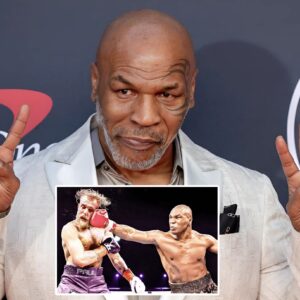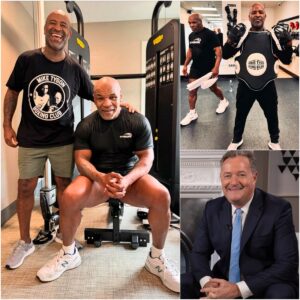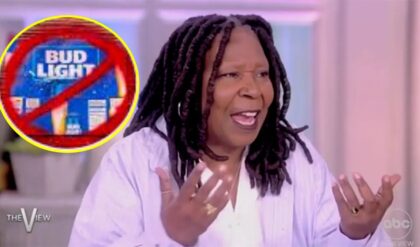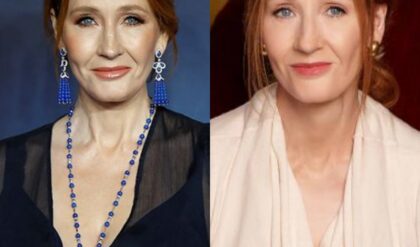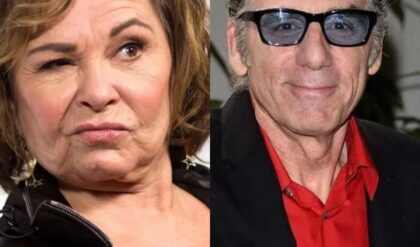Unveiling Hollywood’s Power Dynamics: The Taraji P. Henson Controversy

The controversy surrounding Taraji P. Henson’s alleged mistreatment and blackballing in Hollywood, particularly by Oprah Winfrey and other influential figures, has sparked intense debate and scrutiny within the entertainment industry.
At the center of this controversy is Henson’s outspokenness about the Hollywood pay gap and the mistreatment she endured while working on the film “The Color Purple.”
Terrence Howard, a prominent actor and vocal supporter of Henson, has emerged as a key figure in this controversy. Howard’s unwavering defense of Henson against allegations made by Oprah Winfrey and others underscores the complexities of power dynamics within Hollywood.
Notably, Howard has a history of challenging Oprah, particularly in his support of Monique when she accused Oprah of sabotaging her career.
The accusations leveled against Oprah Winfrey in the video transcription paint a troubling picture of the entertainment mogul’s alleged influence and practices within Hollywood. Claims of planning to blacklist Henson for the perceived failure of “The Color Purple,” along with insinuations about underpaying black actors and mistreating dissenting voices, have raised serious questions about Oprah’s ethics and integrity.
Terrence Howard’s personal history and rumored romantic involvement with Oprah are cited in the narrative to provide context to his involvement in the controversy.
Speculations about Howard’s motivations for defending Henson and publicly criticizing Oprah add layers of complexity to the unfolding drama, further blurring the lines between personal relationships and professional disputes.
The broader implications of the Taraji P. Henson controversy extend beyond individual actors and producers, shining a light on the systemic issues of inequality, exploitation, and abuse of power within Hollywood.
As allegations continue to surface and public scrutiny intensifies, it is imperative that the entertainment industry confronts these issues head-on and implements meaningful reforms to ensure accountability and justice for all.
In the face of adversity and controversy, voices like Taraji P. Henson and Terrence Howard serve as beacons of courage and resilience, challenging the status quo and demanding accountability from those in positions of power.
Their bravery in speaking out against injustice paves the way for a more equitable and inclusive entertainment industry, where talent is valued and respected, regardless of race, gender, or background.
News
ENGLAND fans at home and in Germany are gearing up for the Three Lions’ crunch Euros quarter-final with Switzerland – with kick-off less than an hour away.
ENGLAND fans at home and in Germany are gearing up for the Three Lions’ crunch Euros quarter-final with Switzerland – with kick-off less than an hour away. Supporters are packing out the streets of Dusseldorf ahead of this afternoon’s knock-out game….
Mike Tyson Warns Jake Paul: “HIDE WELL, DON’T LET ME CATCH YOU”
In a recent statement that has sent shockwaves through the boxing world, legendary fighter Mike Tyson issued a stark warning to Jake Paul ahead of their anticipated showdown. Tyson, known for his intimidating presence and formidable boxing skills, didn’t mince…
Logan Paul INSTRUCTS Jake Paul On How To Evade Mike Tyson’s Punches DROP HIS PANTS And RUN As Fast As
In a recent YouTube video, Logan Paul shared some shockingly candid advice for his younger brother Jake Paul on how to handle an encounter with boxing legend Mike Tyson. According to Logan, the best way for Jake to dodge Tyson’s…
(+VIDEO)Mike Tyson BRUTALLY HONEST On Ryan Garcia Failed DR*G Test Against Devin Haney
In an explosive revelation that has the sports world reeling, boxing legend Mike Tyson has openly criticized the handling of Ryan Garcia’s failed drug test prior to his highly anticipated bout against Devin Haney. The incident, which has cast a…
Coach Mike Tyson Shares CONFIDENTLY When Predicting That Mike Will ‘KO In Round 1’ Against Jake Paul In An ONLINE INTERVIEW With Piers Morgan
In a riveting online interview with Piers Morgan, Coach Mike Tyson exudes unwavering confidence as he forecasts a swift victory for boxing legend Mike Tyson in his upcoming bout against Jake Paul. The anticipation surrounding this highly anticipated match has…
Conor Mcgregor And His Trainer Make A SURPRISING STATEMENT About The Fight Between Mike Tyson And JakeA Paul And The Issue Surrounding Fight Watchers
In a recent turn of events, Conor McGregor and his renowned trainer have stirred up the boxing world with their unexpected commentary on the much-anticipated showdown between boxing legend Mike Tyson and the polarizing YouTube sensation turned boxer, Jake Paul….
End of content
No more pages to load
